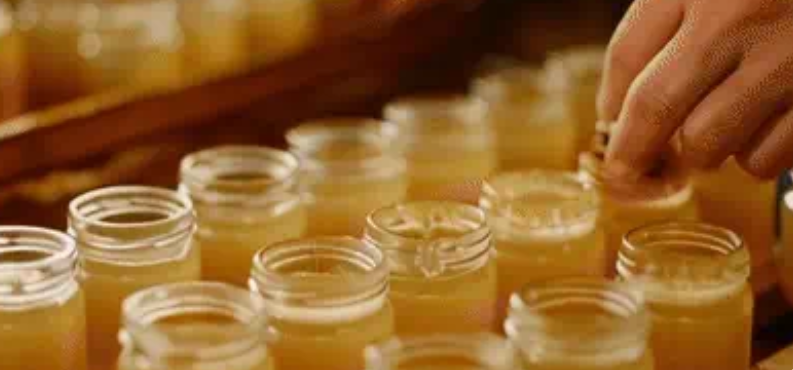Hawaii is often celebrated for its picturesque landscapes, lush biodiversity, and vibrant culture. However, it also plays an essential role in sustainable beekeeping, a practice that is drawing attention not just locally, but globally. With the increasing concerns about climate change and biodiversity loss, sustainable beekeeping in Hawaii offers a beacon of hope. In this article, we will delve into the fascinating world of beekeeping in the Aloha State, its challenges, and the significant strides being made to promote a healthier environment.
The Importance of Sustainable Beekeeping
Bees are not just producers of honey; they are indispensable pollinators supporting ecosystems and agriculture. In Hawaii, bees pollinate a significant percentage of crops, including coffee, macadamia nuts, and various tropical fruits. The decline of bee populations due to pesticides, habitat loss, and climate change poses a serious threat to both local agriculture and global food security. Sustainable beekeeping practices aim to reverse these trends, ensuring both the health of bee populations and the ecosystems they support.
What Makes Hawaii Ideal for Sustainable Beekeeping?
Hawaii's unique environment offers several advantages for sustainable beekeeping:
- Diverse Flora: Hawaii's rich variety of flowering plants provides a continuous supply of nectar and pollen.
- Climate: The tropical weather supports year-round beekeeping activities.
- Isolation: Hawaii's isolation helps protect its bee populations from diseases and pests more common on the mainland.
Challenges Facing Beekeepers in Hawaii
Despite these advantages, Hawaiian beekeepers face a number of challenges:
- Invasive Species: The introduction of pests like the Varroa mite threatens local bee populations.
- Pesticide Use: Agricultural chemicals can be harmful to bees, emphasizing the need for sustainable practices.
- Climate Change: Shifting weather patterns and rising temperatures can affect floral bloom cycles, impacting bee nutrition.
Innovative Sustainable Beekeeping Practices in Hawaii
To combat these challenges, Hawaiian beekeepers are adopting innovative and sustainable methods:
- Organic Beekeeping: Avoiding synthetic chemicals, focusing on natural pest control methods.
- Habitat Restoration: Planting native flowers and creating pollinator-friendly landscapes to support bee populations.
- Community Education: Empowering local communities with knowledge about the importance of bees and sustainable practices.
The Role of Technology in Sustainable Beekeeping
Technology is playing a pivotal role in enhancing sustainable beekeeping practices. Here's how:
- Remote Monitoring: Beekeepers are using sensors and IoT devices to monitor hives for temperature, humidity, and activity levels, ensuring optimal conditions for bees.
- Data Analytics: Analyzing bee behavior and health patterns helps in making informed decisions for hive management.
Success Stories: Hawaiian Beekeepers Leading the Way
Several local beekeepers are making significant strides in sustainable practices:
- Oahu Bee Company: Pioneering organic practices and focusing on bee health to produce high-quality honey.
- Big Island Bees: Combining traditional beekeeping with modern technology to enhance sustainability and productivity.
The Economic and Environmental Benefits of Sustainable Beekeeping
Sustainable beekeeping in Hawaii not only benefits the environment but also bolsters the economy:
- Honey Production: High-quality, organic Hawaiian honey is in demand, contributing to local economies.
- Pollination Services: Enhanced pollination bolsters agricultural productivity, benefiting farmers and communities.
How You Can Support Sustainable Beekeeping in Hawaii
There are several ways you can contribute to the sustainability of beekeeping in Hawaii:
- Buy Local: Support Hawaiian beekeepers by purchasing locally produced honey and bee products.
- Educate Others: Share knowledge about the importance of bees and sustainable practices with friends and family.
- Garden for Bees: Plant native and pollinator-friendly plants in your garden to support bee populations.
Conclusion: A Sweet Future for Sustainable Beekeeping
Sustainable beekeeping in Hawaii is more than just a trend; it is a crucial practice for preserving biodiversity, supporting agriculture, and ensuring a healthy planet. By embracing innovative practices, educating communities, and leveraging technology, Hawaiian beekeepers are setting a global example in sustainability.
Join the movement and support sustainable beekeeping to help ensure a thriving future for bees, agriculture, and our world. Take action today! Visit local bee farms, purchase local honey, and spread the word about the vital role of bees in our ecosystem.
By choosing sustainability, we can all contribute to a brighter, more sustainable future for our planet and its invaluable pollinators.
